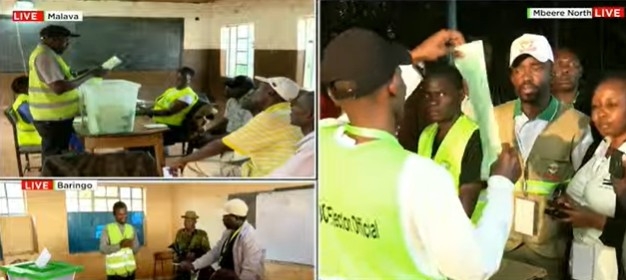

Leading African trade unions have submitted a complaint to the United Nations Working Group on Business and Human Rights, detailing systemic and egregious human rights violations against African migrant workers in Saudi Arabia.
The unions are spearheaded by the African Regional Organisation of the International Trade Union Confederation (ITUC-Africa).
The complaint highlights grave abuses, including forced labour, wage theft, physical and psychological mistreatment and the tragic deaths of workers.
The submission is a joint effort by national trade union federations from across the continent.
They include the Central Organisation of Trade Unions (COTU) in Kenya, the Federation of Somali Trade Unions (FESTU) in Somalia and the Confederation of Ethiopian Trade Unionists (CETU) in Ethiopia.
Others include the National Organisation of Trade Unions (NOTU) in Uganda, the Trade Union Congress of Tanzania (TUCTA), the Ghana Trades Union Congress (GTUC) and the Nigeria Labour Congress (NLC).
Together, these unions represent millions of workers and serve as a powerful voice against the exploitation of African migrant workers. At the centre of the abuses is Saudi Arabia’s Kafala system, a visa sponsorship framework that binds workers’ legal status to their employers.
The system enables employers to exercise overwhelming control over workers’ lives, leading to exploitation, confiscation of passports, restrictions on movement and severe isolation.
Domestic workers, particularly women, are disproportionately affected, frequently subjected to excessive working hours, harassment and sexual exploitation, with no viable means of escape or legal recourse.
The complaint describes harrowing conditions faced by African workers, who endure unsafe working environments, wage denial and abusive treatment.
Workers often find themselves detained in overcrowded and unsanitary facilities, accused of visa violations despite holding legal documentation.
Tragically, many African workers lose their lives due to preventable causes, including workplace accidents, untreated illnesses and relentless mistreatment.
These tragedies not only devastate the workers’ families but also expose the failure of Saudi authorities to enforce labour laws and uphold basic human rights.
These practices flagrantly violate the UN Guiding Principles on Business and Human Rights. Under these principles, states have a duty to protect human rights and ensure that businesses respect these rights.
Saudi Arabia’s failure to regulate employers, enforce labour protections and provide effective remedies for abuses is a direct contravention of these international standards.
Employers in Saudi Arabia also bear responsibility for disregarding their obligations to respect the dignity and well-being of workers, perpetuating a cycle of exploitation and abuse.
In their submission, ITUC-Africa and its affiliates call for urgent and decisive action by the UN Working Group.
They demand the abolition of the Kafala system, the establishment of stronger legal protections for migrant workers and the creation of a compensation fund for victims and their families.
The unions also urge the implementation of an independent monitoring mechanism to oversee labour practices and ensure compliance with international human rights standards.
The unions warn that the upcoming 2034 FIFA World Cup, for which Saudi Arabia is a contender, risks exacerbating these abuses if no action is taken.
They call on the international community to prioritise accountability and human dignity over economic interests, stressing that migrant workers’ lives cannot be collateral damage in the pursuit of profit.
This landmark submission underscores the determination of African trade unions to fight for justice for migrant workers.
It is a call for solidarity from global institutions and a reminder that the dignity, rights and lives of workers must be safeguarded at all costs.
















